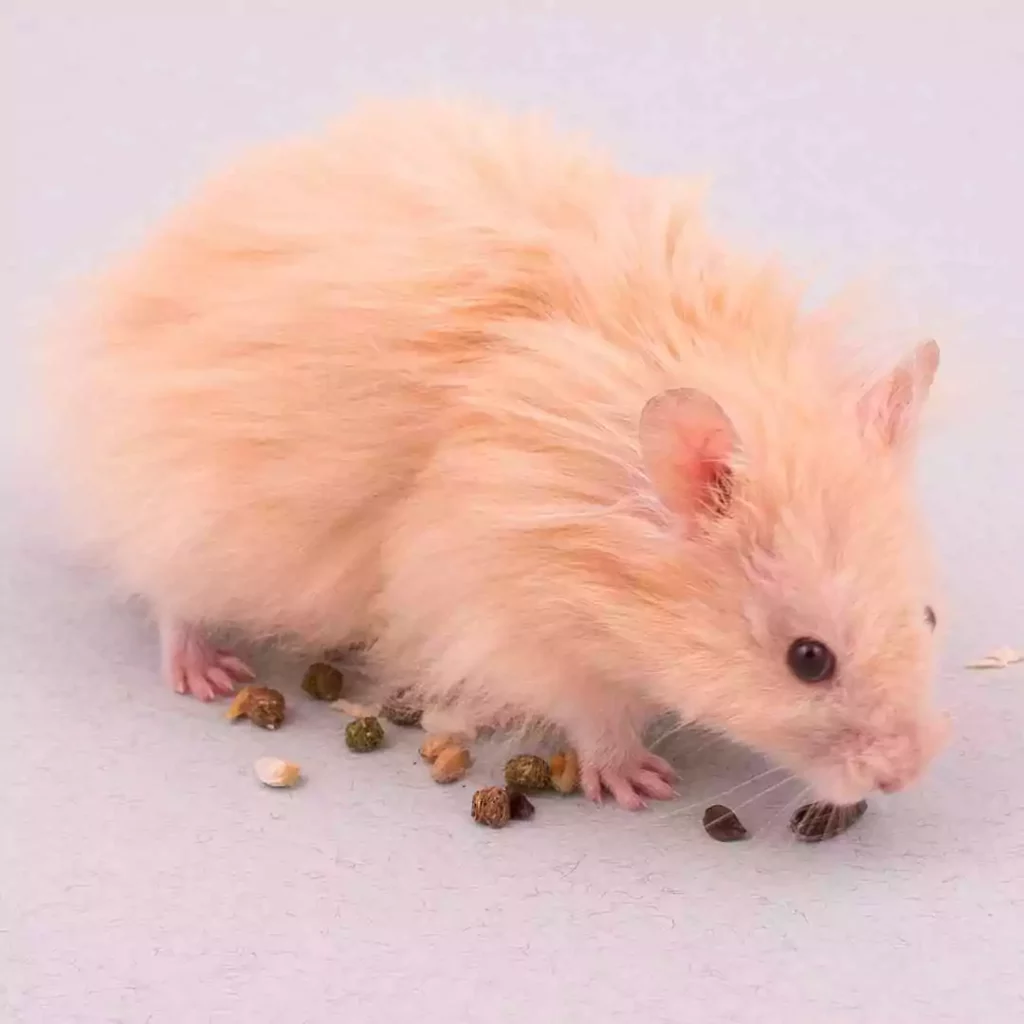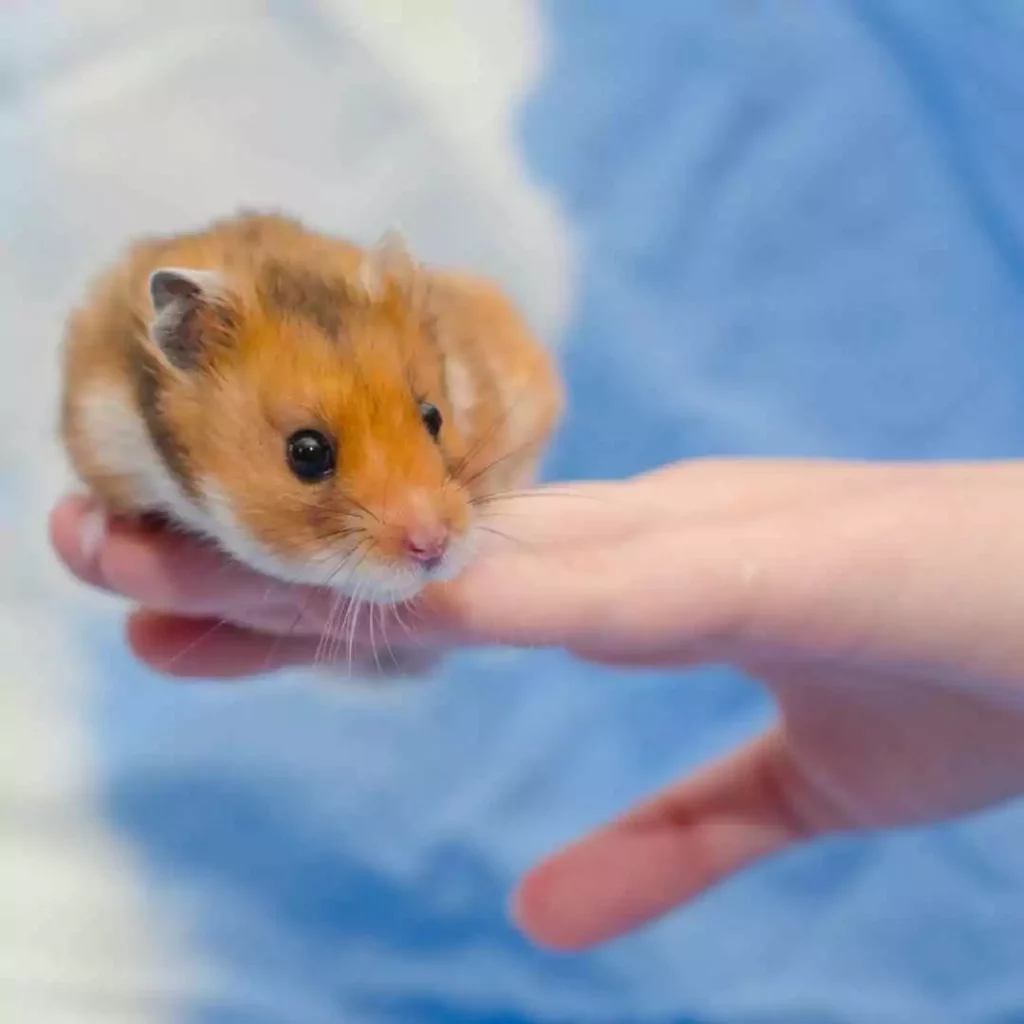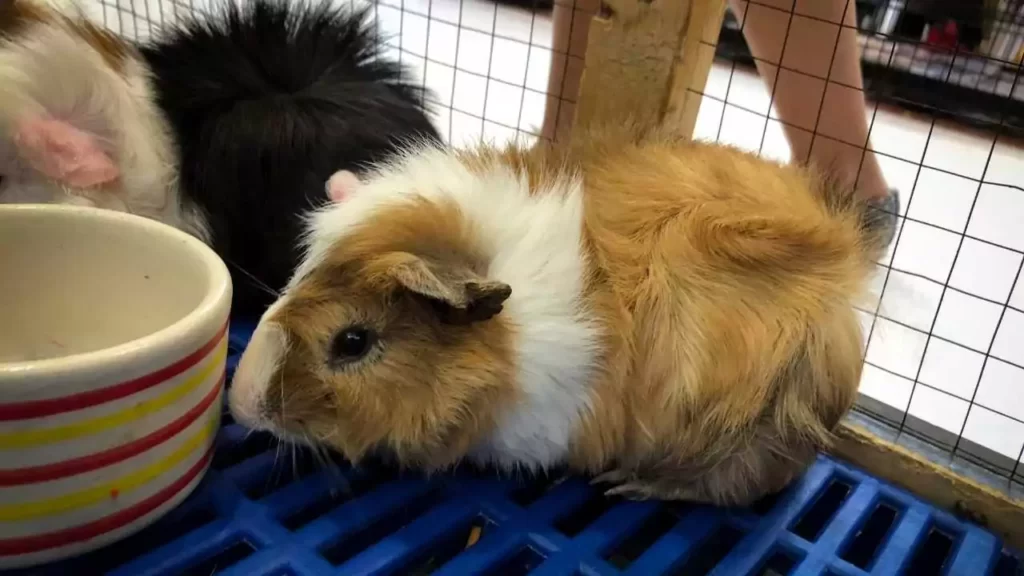If you have hamsters as a pet, you might have noticed that they prefer to doze off during the daytime, and they are more active at night ????.
So, if hamsters ???? are quite busy at night, can they see in the dark?
Well, this is the most common question that any hamster owner asks.
So clearing all the confusion…
Yes, hamsters can see in the dark, and they can find their way in darkness too. At the same time, hamsters are color blind also. They can’t distinguish between different colors.
Want to know more about the sight of your hamster? This blog is for you ????.
Let’s explore.????????
Can Hamsters See in the Dark?

Hamsters have poor eyesight in general, and they are less active in the daytime. While hamsters can see in the dark but not very well.
However, they have an incredible sense of smell and an impressive sense of hearing.
But when it comes to eyesight, they can see in the dark but not very well.
Like many other rodent animals, hamsters are nocturnal and become quite active at night. Hamsters can see in the dark but not very well.
Can Roborovski Hamsters See In the Dark?
Roborovski hamsters are desert hamsters who are well known because of their speed. But can Roborovski hamsters can see in the dark?
Yes, like other hamster species, they can also see in the dark. In fact, they are quite active at night.
Can Syrian Hamster See In the Dark?
No, Syrian hamsters can’t see entirely in the dark. However, they have a fantastic sense of smell, hear, and taste. Through these senses, Syrian hamsters feel things around them in the night.
Hamsters usually require some light to see. The best hours of hamster’s vision are during a dim light.
Bright sunlight hurt the hamster’s eyes, and this makes them unable to see.
Can Hamsters See Color?
Hamsters have 97% of their eyes as rod cells. On the other hand, cone cells in the retina are essential to see bright colors. These con cells contain light-sensitive pigments called opsins that pick different wavelengths and colors. And hamsters have a low level of con cells in their retina. That is the reason hamsters can’t differentiate between colors.
Scientific studies show that Syrian hamsters have monochromatic eyesight that means they can’t see colors. However, studies found that Siberian Hamsters are sensitive to blue and green light stimuli.
Do Hamsters Have Good Night Vision?
Hamsters have poor eyesight, as I told you in the above questions. But do hamsters have good night vision?
Yes, hamsters can see in the dark but not very well. However, hamsters have a great sense of smelling and hearing. With the help of these senses, they can perform well in the dark.
If we talk about, Syrian hamsters they can’t see in darkness ultimately. Their eyes need some light to see around. However, hamsters see best in dim light, just like at dawn and dusk.
Do Hamsters Need Darkness at Night?
Unlike humans, hamsters are nocturnal, which means they perform most of their regular work at night.
Darkness makes hamsters active and more energetic. Here the question comes that do hamsters need darkness at night?
Yes, Definitely! Hamsters need darkness at night to perform better. Hamster’s body needs complete darkness to understand that it’s time to up.
Should I Leave My Hamster In the Dark?
You must have noticed that your pet hamster is sleepy all day and active at night. Even domesticated hamsters are crepuscular in that they are most active in the evening. Even hamsters eat at night and get their exercise at night.
Darkness gives them energetic feelings and prepares them for the next day.
So, coming back to the question that can you leave your hamster in the dark? Yes, any owner can leave his little pet in the dark without any second thought. They are nocturnal and become more active at night.
Just because hamsters don’t sleep at night, it means things are pretty noisy. So if you have to wake early in the morning for school, college, or office, then it might be disturbing for you.
Should I cover my Hamster’s Cage at Night?
Human beings sleep in the dark, but this does not work for hamsters.
These small creatures sleep during the day and are active at night. Hamsters don’t sleep at night. So is there any need to cover the hamster’s cage at night?
Well, no, you don’t need to protect your hamster’s cage at night because they are crepuscular – they are most active in the evening.
But what if you cover your hamster’s cage at night?
As discussed, there is no reason behind covering the hamster’s cage at night, but still, if you protect the coop at night, it can create a cozy environment in the cell that will help the hamsters sleep.
But doing this could make your hamster aggressive because it is against the hamster’s natural instincts.
And according to the Hamster hideout forum, your hamster will show slowness, strange technique of walk, and lethargy.
Moreover, covering your hamster’s cage will reduce ventilation, and if you live in a humid area, this could also contribute to the hamster’s dehydration. That will further lead to respiratory issues.
Should I Cover my Hamster cage during the day?
Hamsters are rodents, and they don’t sleep much. But can you cover their cage during the day?
Well, yes, you can, but this will not help them to sleep ever. Covering your hamster’s cage creates a cozy environment and allows them to sleep. No evidence covering your hamster’s cage during the day can help it to sleep during the day.
Final thoughts
So can hamsters see in the dark? Yes, they can see in the dark but not pretty well. Hamsters have poor sight by nature, but they have extraordinary other senses like smelling and hearing. With these senses, they can find their way easily in the dark.
Moreover, hamsters are color blind as well. Since hamsters can’t see well so should have to be extra careful while protecting your adorable hamster from falling.
Protect your pet hamsters by keeping them away from any high place. You can place ramps and other things in the cage for their comfort.
By creating a moderate and quiet environment, you can make feel your little hamster-like home.
SmallPetsX.Com does not provide veterinary advice. Our aim to help small pet owners understand their pets a little better so that they can provide their pets with the life they deserve. All content is therefore for informational purposes only. If you're concerned about the health of your pet you should seek medical advice from a vet.




